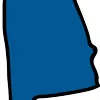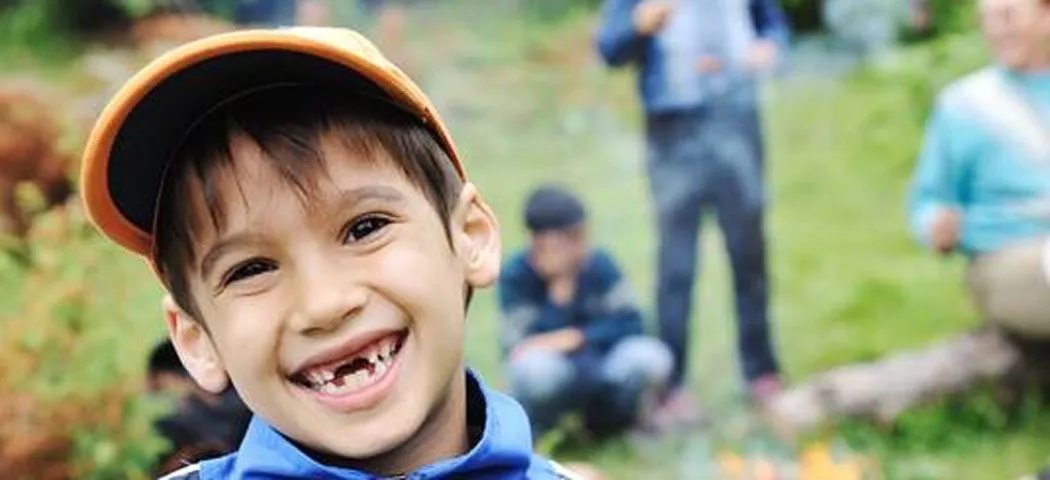
Summer Adventures in Learning (SAIL)
Birmingham, AL
Summer Adventures in Learning (SAIL) is a partnership that focuses on summer programs in which students can explore new interests and skills while also gaining the support they need to prevent summer learning loss.
The summer slide isn’t just the bane of fall-semester teachers. Studies suggest that for disadvantaged students, summer learning loss can be the primary contributor to a reading achievement gap that leaves students three years behind by the end of ninth grade.1 That’s the bad news. But the good news is that across Alabama, Summer Adventures in Learning (SAIL) collaborators are combining their talents, resources, and tools to harness the power of summer, using the time to bolster student learning and shrink gaps.
SAIL Chairman of the Board Jim Wooten says that SAIL programs don’t just stop summer learning loss, they help students advance two to four months beyond their previous year-end achievement levels. Renaissance Star Reading® and Renaissance Star Math® serve as the foundation of the SAIL assessment and quality-assurance framework. Wooten explains, “We use the data to measure growth, create individualized learning plans, and evaluate program-level effectiveness. Renaissance creates the only assessment solution we’ve found that works for short-duration summer programs, allowing us to accurately measure movement over four- to six-week programs, and even mid-program assessments to assure interventions are working.”
“Renaissance solutions have helped the SAIL collaborative effectively scale across both time and geography. In the five years since our founding, we’ve nearly quadrupled our reach to serve some 2,600 students, helping summer programs across the state achieve quality academic results,” Wooten says.
Renaissance creates the only assessment solution we’ve found that works for short-duration summer programs.
Jim Wooten, Chairman, SAIL
The challenge
Growth in six weeks or less
The success of a single summer program in 2010 turned out to be the genesis of the SAIL collaborative. Working at the time as the director of a supporting foundation, Wooten says his team enthusiastically set out to provide assistance to similar summer programs. “To our surprise, there weren’t any. As a result, we shifted into a proactive mode and approached a number of well-regarded community organizations, urging them to work with us to integrate an academic element into their existing summer programs. The YWCA was the next one to come on board, and by the summer of 2012, we were informally working with 12 programs supported by three local funders.”
In the fall of 2012, six Birmingham foundations formally established the SAIL collaborative to support education and to specifically address the challenge of summer learning loss. Wooten, in his role as chairman, helped develop the organization’s operating model around key tenets of the collective impact framework2 and the corporate world’s data-driven approach to achieving quality and excellence.
Wooten says that to support this model—which incorporates critical-to-success elements like goal alignment, common measurement systems, progress tracking and communications, and continuous improvement—SAIL required an assessment solution that could deliver accurate results in “less-than-ideal” conditions. “Our longest programs run about six weeks, with typically just 70–90 hours available for instruction, so there’s little time to measure progress and implement intervention activities.”
To evaluate assessment solutions, the collaborative engaged the Public Affairs Research Council of Alabama (PARCA), a nonpartisan, nonprofit research center that promotes best practices and evidence-based decision-making in Alabama’s governments, schools, and nonprofits.3 Upon completion of its evaluation, PARCA recommended implementation of Renaissance Star Assessments®, based on the solution’s formative-assessments functionality, robust reporting features, and ability to deliver highly accurate results in short time frames.
The results
Academic gains, expanding impact, and a replicable process
From summer setbacks to vacation gains
Today, all SAIL programs use Star Reading and Star Math for pre- and post-program student assessments. Star Assessments require just 20–30 minutes, so educators can run interim assessments to identify and remediate weaknesses. Wooten explains, “The efficiency of Star Assessments mitigates the issue of test fatigue. And, by facilitating the creation of individualized learning plans, Star Assessments help educators move students further, faster. Mature SAIL programs typically achieve grade-equivalent gains of two months in both reading and math. Most recently, our high-performing students, representing roughly 30 percent of our total enrollment, achieved a median gain of four months in math and three and a half in reading.”
“One of my favorite success stories about a young lady enrolled in one of our early SAIL programs helps illustrate the power of Star Assessments. Prior to implementing Star Assessments, teachers relied on pen-and-paper assessments to evaluate students who typically participated after their second-, third-, and fourth-grade school years. In the program’s first year of using Star Assessments (and at the beginning of this struggling student’s third year in the program), teachers were not surprised to see her math skills assessed at a second-grade, ninth-month level. But this time around, using the data in Star Assessments, teachers could pinpoint—and quickly remediate—her difficulties with multiplication. Assessed again at the end of the six-week program, our young lady had advanced to a fifth-grade, second-month level in math.”
Lest anyone worry about academics taking the fun out of summer, Wooten emphasizes the school-within-a-camp model that all SAIL programs follow. “We work with dynamic summer programs—like local chapters of Boys & Girls Clubs of America, YMCA/YWCA summer camps, community- and faith-based programs, and sports-focused camps—to integrate or expand an existing academic component into the organization’s schedule of traditional summer activities. Kids think it’s camp, but come fall, teachers know their students have been in school!”
Most recently, our high-performing students, representing roughly 30 percent of our total enrollment, achieved a median gain of four months in math and three and a half in reading.
Jim Wooten, Chairman, SAIL
More resources, more impact
The data from Star Assessments also helps both program managers and funding partners evaluate program-level effectiveness. This year, SAIL funders will contribute nearly $1 million to 46 summer learning programs across Alabama, from Birmingham to Huntsville to Tuscaloosa and beyond. Wooten says that SAIL also participates in state and national education-focused events, including the annual conference of the National Summer Learning Association (NSLA). “Many of our SAIL program partners are members of the NSLA, and we welcome opportunities to share our experiences. I think what differentiates the SAIL collaborative from other summer-learning investors is our grassroots, community-based approach that emphasizes quality and outcomes. Star Assessments are key to that strategy. Renaissance gives us: (1) a common tool that all SAIL-supported educators—currently about 250—can use; (2) easily understood summary data for use in standardized post-program reports; and (3) a common language for evaluating progress.”
“Another benefit of working with Renaissance is the availability of additional tools to accelerate learning. For example, the myON®, by Renaissance digital content library has the potential to help us reach more of our rural students with relevant and timely literature.”
In summarizing the work of the SAIL collaborative, Wooten encourages schools and other education-minded organizations to get involved. “Through the hard work of our programs and funding partners, we’ve been able to develop a cost-effective, replicable, and measurable process for closing the achievement gap. The collective efforts of these organizations are making a positive impact on education in Alabama—and we hope will inspire others to come share the fun!”

